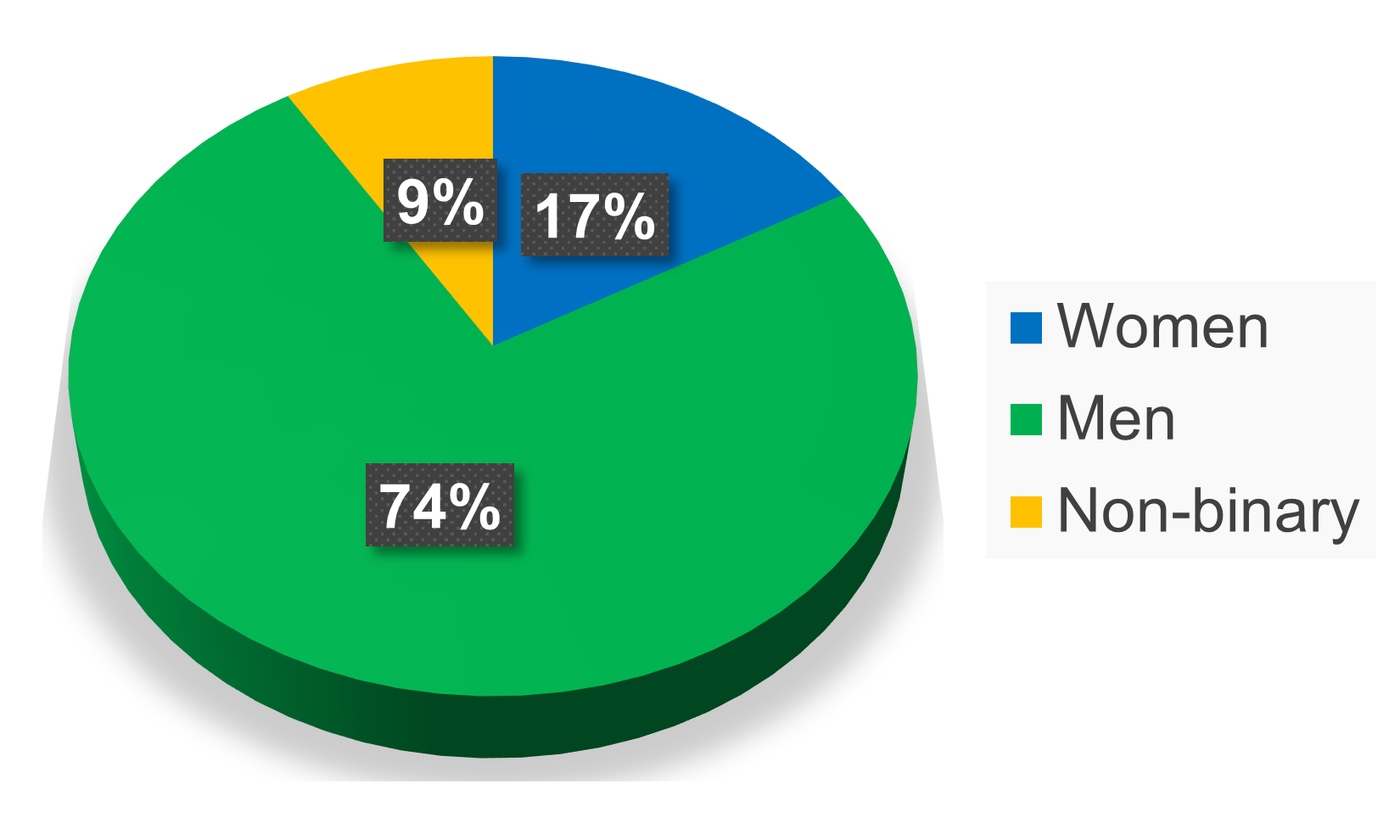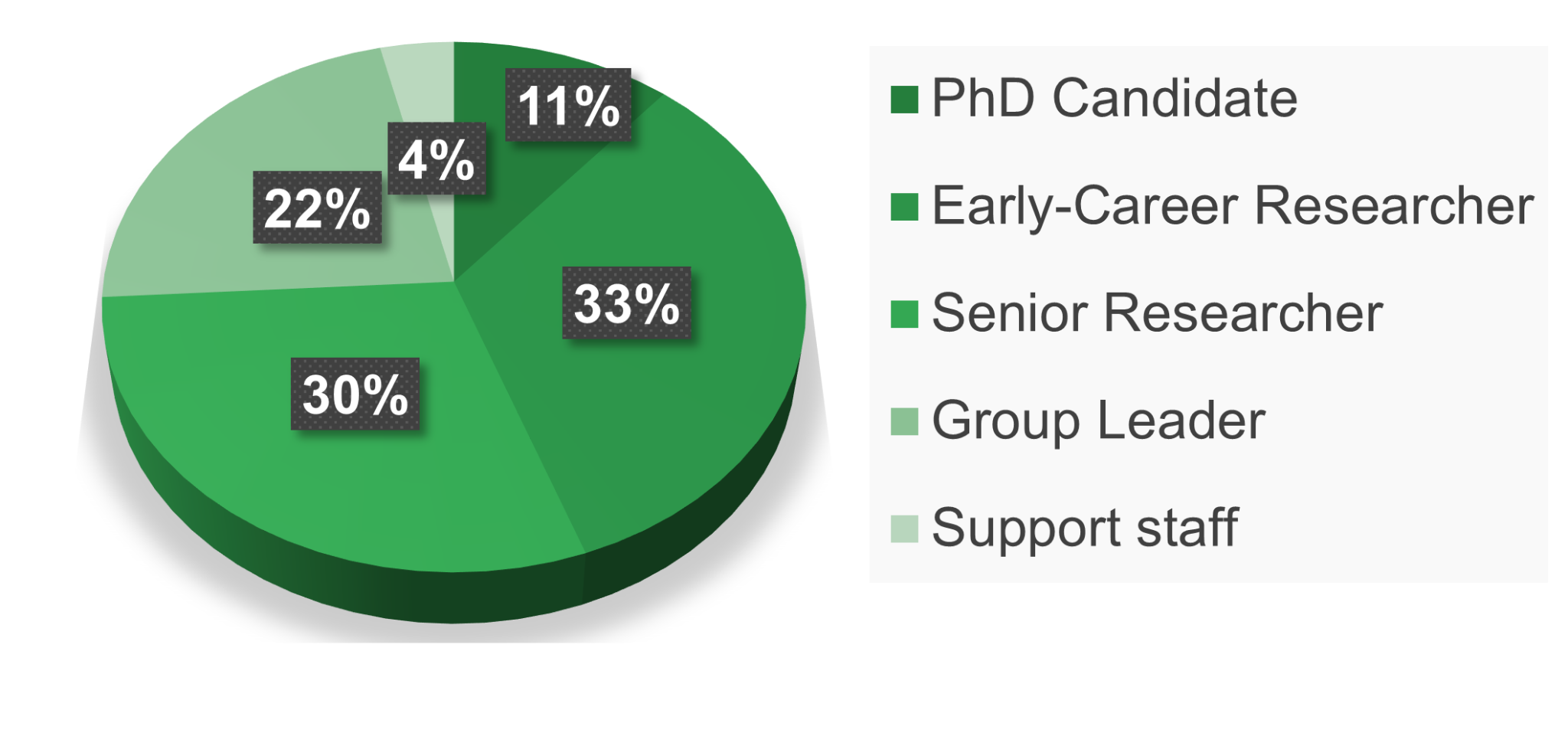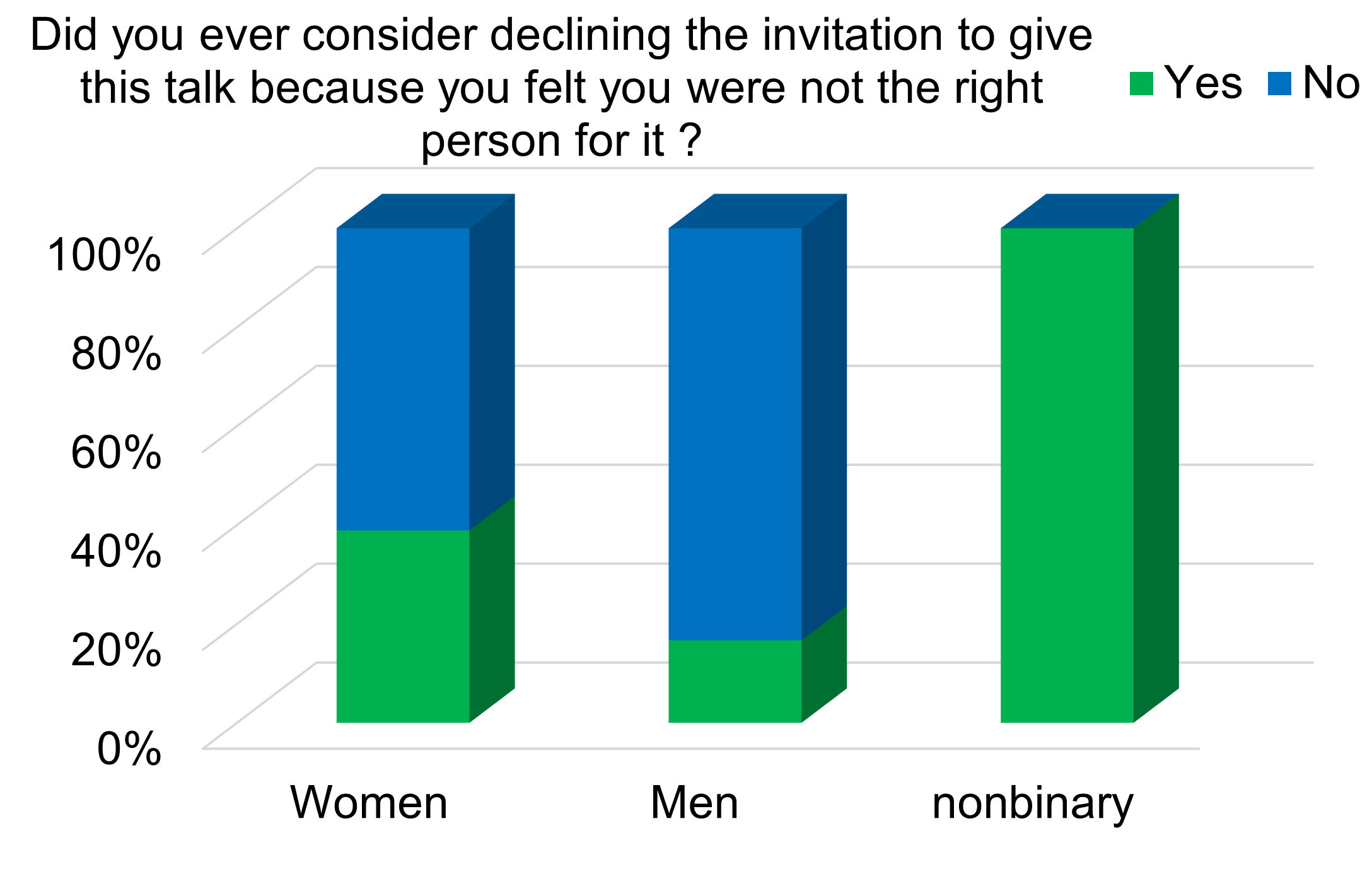During the HiPEAC Conference in Barcelona, POP3 co-organized two full-day workshops aimed at discussing the current status of HPC applications in Europe and the ongoing collaborative efforts to enhance their scalability.
The organizing team focused on gathering contributions from various European Centres of Excellence (CoEs) and other relevant projects. Special attention was given to gender balance when inviting speakers, reflecting a commitment to inclusivity and diversity in the HPC community. As a result, the program featured:
- 22 technical talks
- 1 panel discussion
- 2 live demos
These sessions showcased contributions from 11 of the 12 active CoEs, as well as representatives from Destination Earth, EPICURE, ENES, CASTIEL-2, and the EuroHPC Joint Undertaking. The speaker distribution by gender was 74% female, 22% male, and 4% non-binary (see Fig 1).

Fig 1: Distribution by gender of speakers of the two CoEs workshops
The workshops were well attended, with 25 to 30 participants per session, and they generated lively, in-depth discussions between speakers and the audience. Even more encouraging was the gender balance among workshop attendees: 56% women and 44% men, achieving a balanced gender distribution. Considering that the gender distribution of the registered participants of this edition of the HIPEAC conference was 17% women and 74% men (see Fig 2), this shift represents a remarkable achievement.

Fig 2: Distribution by gender of people registered to the HIPEAC 2025 conference
Measuring Impact: Insights from the Speakers
To evaluate the impact of these efforts, we invited speakers to complete a short questionnaire. Below are some of the most meaningful insights from their responses.
- In terms of career stage, speakers were evenly distributed among early-career researchers, senior researchers, and group leaders (see Fig 3).

Fig 3: Career level of speakers of the two CoEs workshops
- When asked: “If you had not been invited as a speaker, would you still have attended the HiPEAC conference?”
Only 23% of female speakers said yes, compared to 66% of male speakers answering positively (see Fig 4).
This underlines the importance of actively inviting women to participate—many of whom might not have otherwise attended the conference.

Fig 4: Response by gender to the question:
“If you had not been invited as a speaker, would you still have attended the HiPEAC conference?”
- To the question: “Did you ever consider declining the invitation to give this talk because you felt you were not the right person for it?”
39% of female speakers answered yes, compared to only 16% of male speakers (See Fig 5).
This finding highlights a key barrier to inclusion: women are more likely to doubt their suitability, even when they are fully qualified. It also reinforces the importance of direct invitations rather than open calls, such as “We need a volunteer to speak on this topic.”

Fig 5: Response by gender to the question: Did you ever consider declining the invitation to give this talk because you felt you were not the right person for it?”
By proactively reaching out to women and underrepresented groups, we can help ensure a more balanced and representative set of voices in HPC discussions. We will also provide opportunities to female researchers to attend this kind of event, where they can enrich their career by listening to technical talks and networking with peers.
Attendee Feedback
To close, we’d like to share some quotes from attendees, which reflect the value and impact of the workshops:
“Thanks for establishing safe spaces for early career researchers. It was a great opportunity and experience.”
“Everything was quite welcoming, the communication with the organizers was great. It has been amazing being in a technical event with so many women, thank you!”
“Very interesting workshop, nice to have women presenting about HPC. We could think about organizing a separate (i.e. separate from HiPEAC) and independant women in HPC Workshop.”
